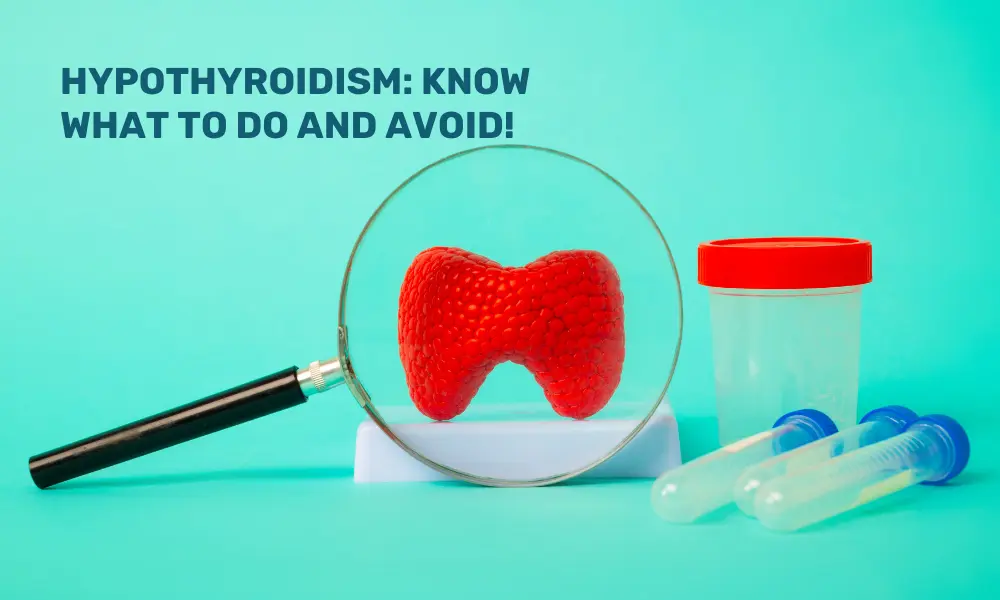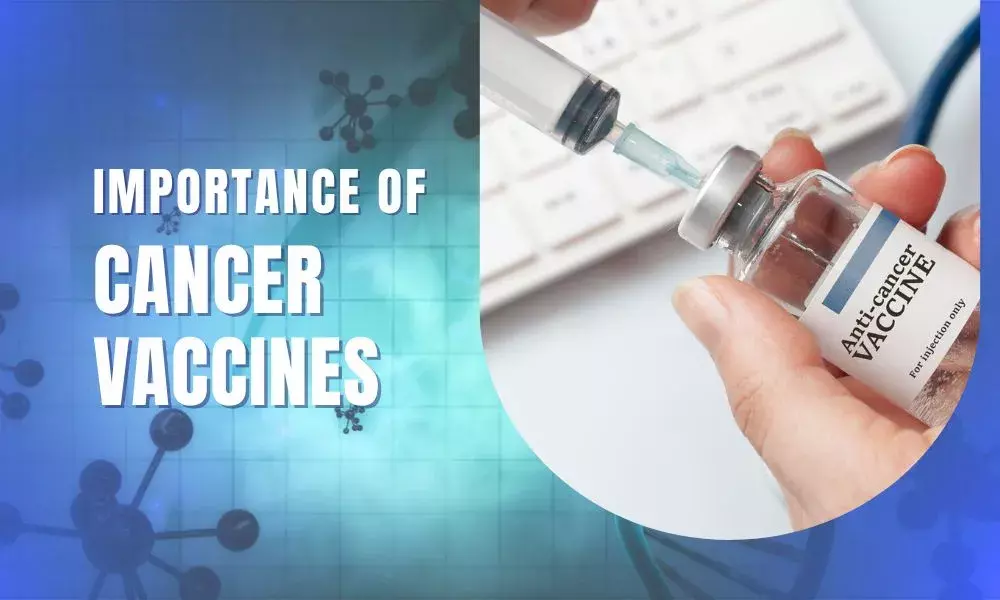Hypothyroidism is a condition in which the thyroid gland produces fewer thyroid hormones. This can impact an individual’s overall health, so it is essential to know what to do and avoid in this condition.
Thyroid Gland and its function
We all have a gland located in front of the neck. It’s shaped like a butterfly and is present in the neck, just wrapped around the windpipe, which is known as the trachea. This thyroid gland produces three important hormones: T4, T3, and calcitonin.
When the thyroid gland is not doing its job well, which means it is not producing enough T4 and T3, this is known as hypothyroidism, which means the thyroid is functioning sub-optimally. To diagnose this, we do a test called TSH and 3T four level.
The thyroid-stimulating hormone
TSH is a thyroid-stimulating hormone produced by the pituitary gland in the brain.
TSH controls the production of thyroid hormone. It tells the thyroid how much T3 and T4 to make. If TSH levels are high, the thyroid is not functioning well, and in response, the pituitary gland produces more TSH. So, in a typical condition of hypothyroidism, TSH levels are high, and T4 levels are lower.
Symptoms to know
Hypothyroidism may not have any symptoms in the beginning. We must do an annual checkup and check for thyroid and more so when a woman is pregnant, thyroid testing is mandatory, but hypothyroidism typically can cause the symptoms which may include:
-
Tiredness And Fatigue
-
Feeling Weak
-
Constipation
-
Dry Skin
-
Depression
-
Thinning Hair
-
Brittle Nails
-
Have Muscle Cramps
-
Joint Pains
-
Unexplained Weight Gain
Further, hypothyroidism in women may typically disturb their monthly cycle. It can cause irregular periods, heavy periods, and sometimes even longer periods, and it can also cause early puberty in young children.
What are the causes?
In most cases, hypothyroidism is autoimmune, which means that the body’s immune cells attack the thyroid gland and prevent it from doing its job well.
The most common example is Hashimoto’s thyroiditis. Our thyroid gland requires Iodine to produce these hormones.
Many times, it causes iodine deficiency that may also cause hypothyroidism and, of course, genetics, family history, environmental toxins, supposing somebody has undergone some surgery or radiation treatment for the thyroid, certain medications also can affect the thyroid.
It’s important if somebody is diagnosed with hypothyroidism, they must consult a specialist so that the cause of the hypothyroidism is identified and treated timely.
Preventive Tips
The most important part of prevention is regular thyroid testing and treatment. If someone is diagnosed with hypothyroidism, they must treat it by taking a medicine called thyroxine.
Remember, there is no cure for hypothyroidism, but when we give a medicine, it restores the hormone levels and allows the person to live a normal life.
Avoid a diet that contains refined sugars, alcohol, trans fats, and processed foods. Avoid taking a lot of goitrogens. Goitrogens are compounds that block the uptake of Iodine in your thyroid gland. Common examples are soya and cruciferous vegetables such as broccoli, cauliflower, cabbage, turnip, and kale.
They block the thyroid’s ability to utilize Iodine. This does not mean that one must not eat these at all, but eating in moderation is advised. If one has a family history of thyroid disease or if the doctor says that one tends to have a thyroid problem, it is important to avoid all this. One may also soak these vegetables, boil or steam them before eating them, and make sure that they reduce gluten in their diet.
The Bottom line
To avoid thyroid complications, take enough supplements like B12, iron, zinc, and Iodine. Also, losing weight can help. People who are overweight have a higher chance of having a thyroid problem. Avoid stress exercises and make sure to sleep well.




